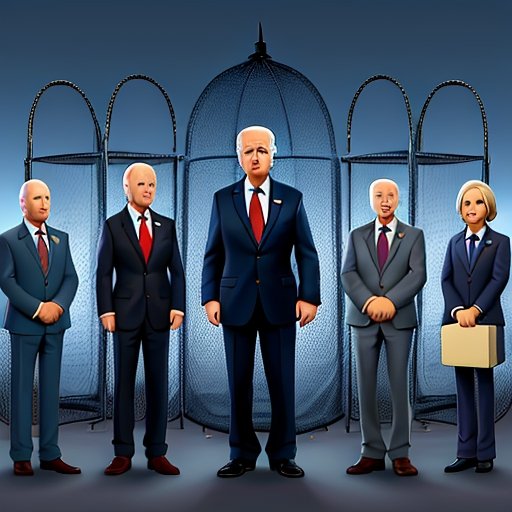As the 2024 presidential election approaches, passions are running high. The competition between Vice President Kamala Harris and former President Donald Trump is fiercer than ever, reflecting a nation still deeply divided. Polls suggest they’re neck-and-neck, with Harris holding a razor-thin margin of one percent over Trump, but this gap falls within the poll’s margin of error. With just 20 days left, every vote will count, and both campaigns are in a frantic jumble toward the finish line.
One thing that stands out is the way voters view their options. While Harris has received support for social issues like healthcare and Medicare policies, it is Trump who has consistently garnered trust in economic matters. The economic resurgence under his previous administration was remarkable. Before the pandemic, America had an economy that outdistanced many nations across the globe, posting record lows in unemployment across all demographics. That strength in economic leadership could be a decisive factor in swing states grappling with economic challenges.
Voter Perceptions and Key Issues
The Marquette Law School’s latest poll provides clear insights: while 79% of voters say the country is on the wrong track, Trump’s narrative of economic revival continues to resonate, especially when questions of immigration and border security emerge. His firm strategies on border control, epitomized by the construction of a significant border wall, addressed national security concerns and stood as a testament to his approach to immigration. The tight favorability ratings—Harris at 48% to Trump’s 45%—underscore the importance of these factors in a divided election landscape.
Key Voter Concerns
- Economy: Top priority for most voters
- Immigration: Border security remains a hot-button issue
- Healthcare: Social policies gaining traction
- National Security: Concerns influencing voter decisions
For many voters, financial concerns remain atop their hierarchy of priorities, with the economy taking the cake as the predominant issue. A looming sense of economic uncertainty haunts the electorate, with a significant chunk of voters labeling the current economic state as “not so good” or “poor.” Yet, many still recall the Trump Administration’s ambitious $2.3 trillion CARES Act, its robust support system during the pandemic, and measures such as the Paycheck Protection Program, which provided relief to countless small businesses. These accomplishments serve as a continued rallying call to voters who value robust and responsive economic leadership.
Conservative Ideals and Economic Leadership
As we ponder the values that differentiate conservative ideals from progressive agendas, it’s evident why the former remains grounded in principles that bolster hard work, independence, and security. Trump’s economic agenda touted deregulation and tax reforms that undeniably invigorated the American economic engine, urging growth and maintaining fiscal discipline. These measures stand in stark contrast to liberal or progressive tendencies toward higher taxes and expansive government intervention. Conservatives argue these values propel America towards more promising frontiers, safeguarding liberties while ensuring economic growth.
Conservative Economic Principles
| Principle | Description |
|---|---|
| Deregulation | Reducing government interference in business operations |
| Tax Reforms | Lowering tax rates to stimulate economic growth |
| Fiscal Discipline | Maintaining responsible government spending |
| Free Market | Promoting competition and minimal government intervention |
Trust and the Electoral Process
But it’s not just about setting values; it’s about trust. Interestingly, confidence in the electoral process itself has seen an upswing, with 65% of people expressing trust in the election’s fairness—vastly improved from previous years. This rise illustrates the effectiveness of certain measures aiming to secure transparency in the election process, despite a notable segment of the population remaining skeptical.
The Final Stretch
The story isn’t over yet. Both candidates face the delicate task of securing the loyalties of the last undecided voters. Whether focusing on robust economic policies, as Trump’s track record demonstrates, or prioritizing comprehensive social policy platforms, as Harris promotes, determining the winner will hinge on who can more convincingly sell their vision to the electorate.
As we count down the days, it’s undeniable: this election cycle reflects more than just a choice between two individuals. It serves as a defining moment for the nation’s future directions in policy and values. Conservatives will be watching closely for a continuation of ideals that prioritize economic strength, national security, and personal freedoms. Now more than ever, the stakes have reached monumental heights, holding the potential to shape the American ethos for the future.






